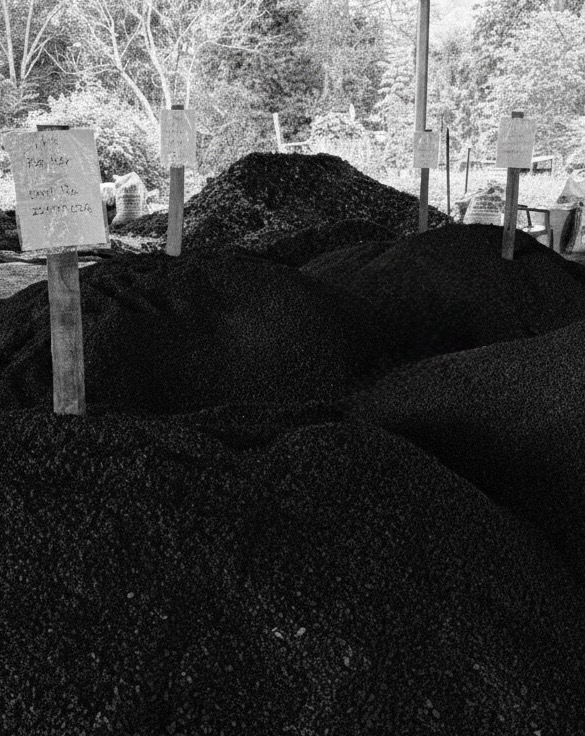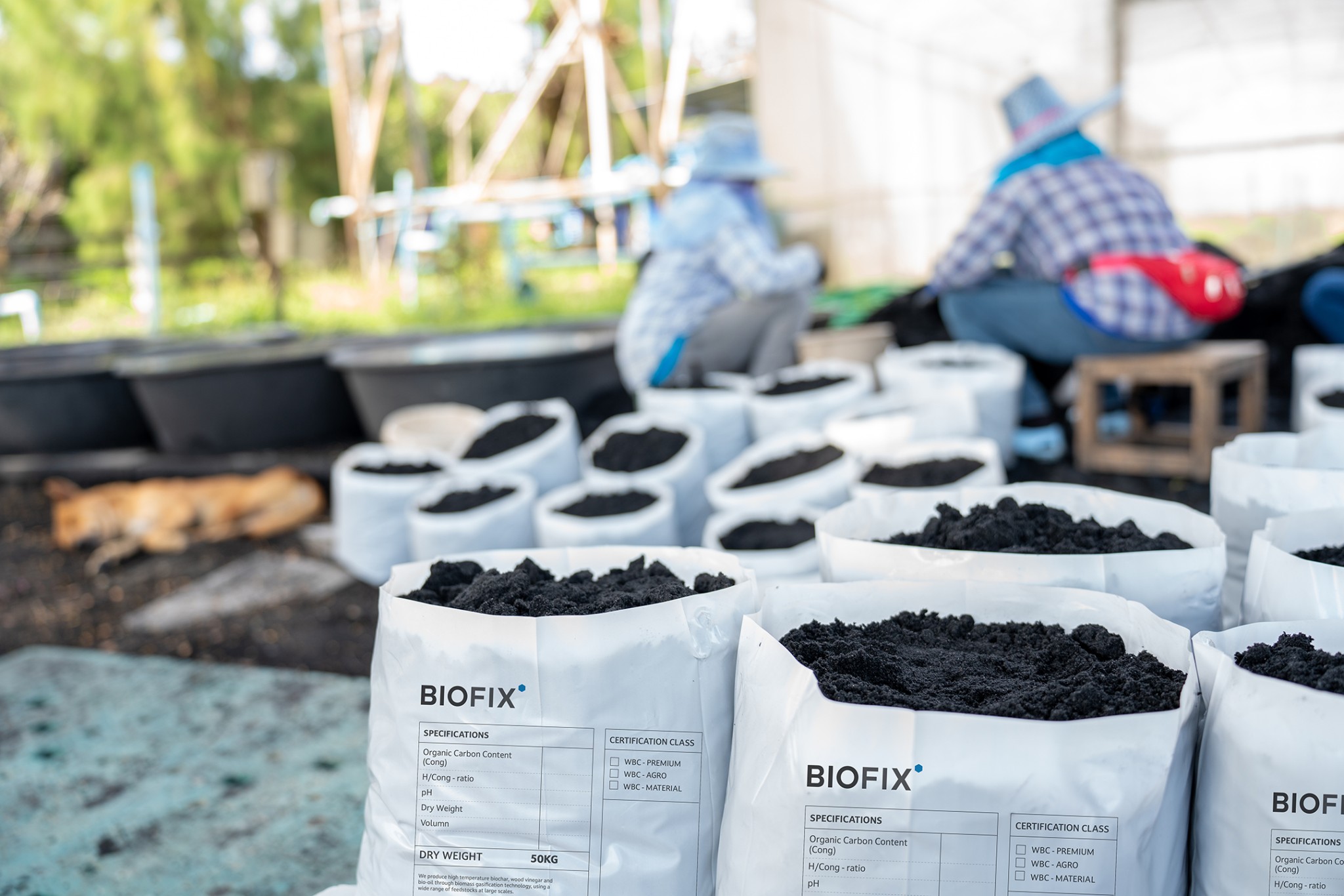What is Biochar?

Biochar is a charcoal-like material made by heating biomass residues—such as wood chips, forestry trimmings, or nut shells—in a low-oxygen process called pyrolysis.
When added to soil or incorporated into construction materials, biochar locks carbon away for centuries to millennia while improving soil health, retaining water and nutrients, and supporting long-term climate resilience.
Introducing Biofix:
Biochar That Fixes Carbon
An Elegant Solution to the Climate Crisis
Biofix is our premium biochar product, produced through high-temperature gasification (>850°C). It represents an elegant and multifaceted approach to addressing our global climate challenge.
How Biofix Works
Our advanced production process transforms organic carbon into a stable, mineral form. When applied, Biofix permanently removes atmospheric carbon dioxide, sequestering it for centuries to millennia. This “fixed” carbon offers long-lasting benefits across a wide range of applications, far beyond traditional soil enhancement.

Biofix doesn’t just sequester carbon—it provides innovative solutions across industries:
Climate Mitigation
- Permanently removes CO2 from the atmosphere, storing it in a stable form
Construction Revolution
- Decarbonises the building industry when added to concrete, asphalt, and other materials
Industrial Innovation
- Enhances filtration systems and serves as a versatile additive in various processes
Environmental Remediation
- Immobilizes contaminants in soil and water
Agricultural Advancement
- Improves soil health, water retention, and crop yields
Waste Management
- Optimizes composting and reduces emissions from organic waste
Beyond Soil: A Carbon-Fixing Powerhouse
While Biofix excels in soil applications, its potential reaches much further. From revolutionising construction materials to innovating industrial processes, Biofix represents a new frontier in climate action.
Choose Biofix to be part of an elegant, multifaceted solution to our climate crisis. It’s not just biochar—it’s a solution that fixes carbon and so much more.
Concept credit: Kelpie Wilson, “Biochar Fixes Carbon“
Types of Biochar
1. Palm Kernel Shells (PKS) Biochar
Biochar produced from PKS in Malaysia.
Instead of burning PKS as boiler fuel, we convert this abundant palm oil by-product into a stable form of carbon. Our PKS biochar provides a more sustainable end use.
2. Empty Fruit Bunches (EFB) Biochar
Biochar produced from EFB in Malaysia.
Our EFB biochar offers a permanent and final disposal pathway for this abundant agricultural by-product.
3. Bamboo Biochar
Biochar produced from bamboo in Malaysia.
Wild, mature bamboo are harvested as part of sustainable forest management practice and is converted into biochar rather than left to decompose.
4. Woodchip Biochar
Biochar produced from Gliricidia sepium trees in Sri Lanka.
Woodchip biochar in Sri Lanka is being used for agricultural applications such as tree planting and for soil remediation in areas experiencing Arsenic poisoning.
5. Chicken Manure Biochar
Biochar produced from broiler chicken manure in Turkey.
Chicken manure biochar in Turkey is being used as an additive to Anaerobic Digestion (AD) operations to increase the rate of Methane production and also as a compost additive.
